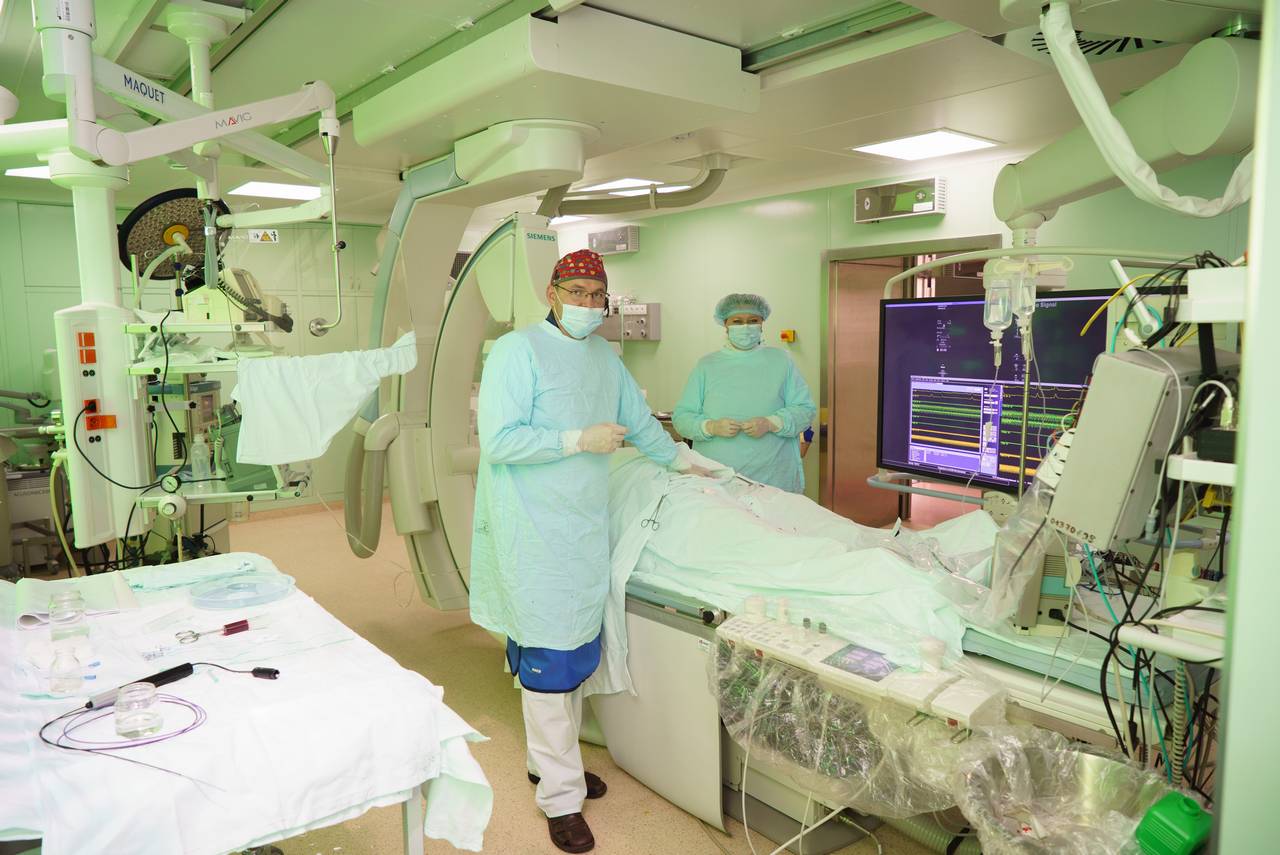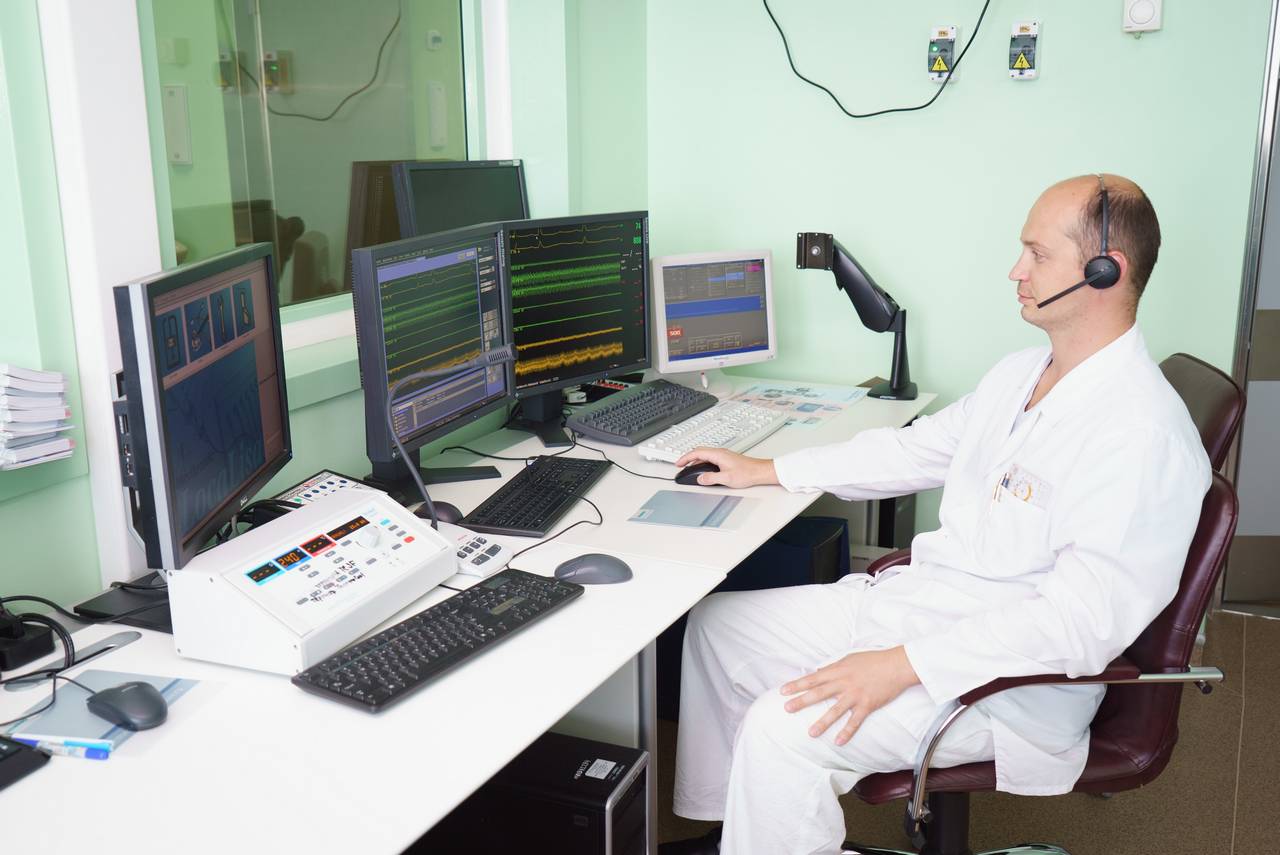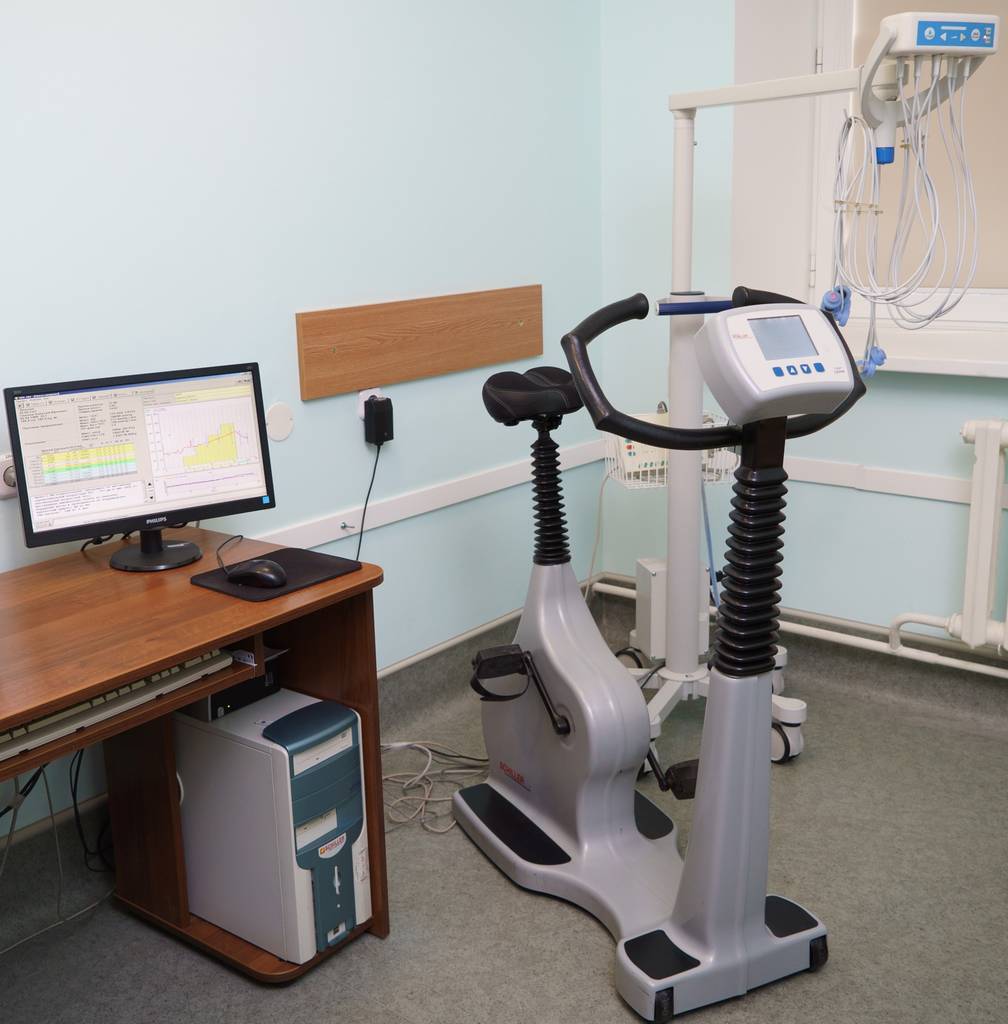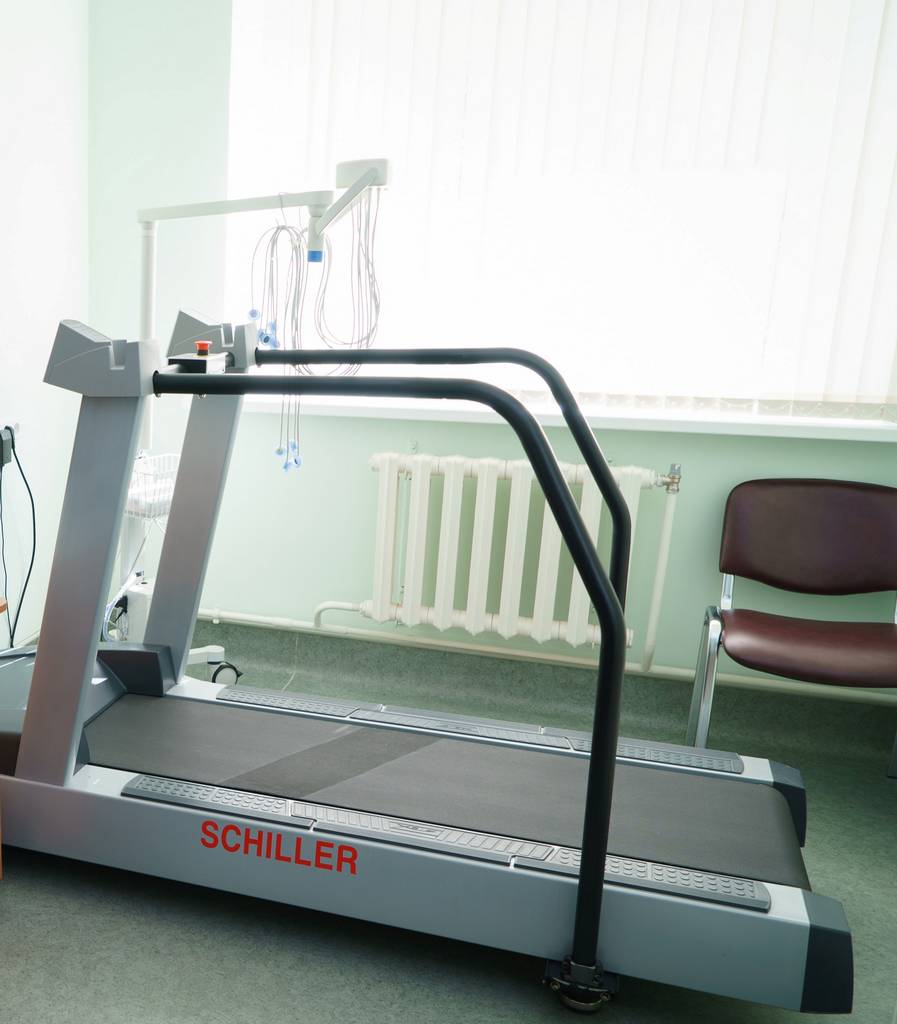Diagnostic tests
For inpatient diagnostics and treatment of foreign citizens you can contact us the following ways:
Tel: +375(33)350-98-44
Skype: cardio-minsk
E-mail: ovbd@cardio.by
DIAGNOSTIC TESTS
The Center is equipped with high quality modern equipment with the help of which different types of functional and diagnostic tests of the cardiovascular system can be performed. Application of the latest generation diagnostic equipment allows to study functional and anatomical peculiarities of heart and vessels and to detect diseases at the earliest stages within a few hours.


FUNCTIONAL TESTS
Electrocardiography (ECG) is an essential method of heart examination. ECG provides information about the frequency and regularity of heart rhythm, arrhythmia as well as the sufficiency or deficiency of blood supply to the heart muscle (myocardium).
Holter ECG monitoring is a method of ambulatory ECG recording for 22-24 hours. The method is used for in-depth analysis of arrhythmias and detection of myocardial ischemia episodes.
Ambulatory blood pressure monitoring (ABPM) is a method of daily blood pressure registration using an automated computerized tonometer. The test is conducted in the conditions of normal life and allows to detect the presence or absence of arterial hypertension in a patient, as well as the effectiveness of the ongoing treatment.


Cycle Ergometer Test (CET) or Treadmill test means that ECG is taken while the patient performs physical activity (cycling or walking on a treadmill). This test not only allows you to determine the patient's tolerance of physical activity, but also to identify changes in the cardiovascular system caused by it. Basically, stress tests are used to detect coronary heart disease, exercise-induced heart rhythm abnormalities and to evaluate the results of angioplasty or coronary artery bypass surgery. The advantage of the stress testing is that is simulates daily exercise.
MEDICAL ULTRASOUND
 Echocardiography (ECHO or heart ultrasound) determines the size of cavities and heart wall thickness, assesses the work of the valve system, reveals abnormalities of contractile and relaxation function, gives characteristics of blood flow inside the heart. It allows to diagnose coronary heart disease, angina pectoris, myocardial infarction, diseases of the muscular and outer layer of the heart. It might also be included in preventive examinations, because the method allows to detect cardiac disorders at the earliest stages. Indications for Echo are diverse: pain in the heart area, electrocardiogram changes, murmurs in the heart, heart rhythm disorders, hypertension, congenital heart disease, the presence of signs of heart failure, etc.
Echocardiography (ECHO or heart ultrasound) determines the size of cavities and heart wall thickness, assesses the work of the valve system, reveals abnormalities of contractile and relaxation function, gives characteristics of blood flow inside the heart. It allows to diagnose coronary heart disease, angina pectoris, myocardial infarction, diseases of the muscular and outer layer of the heart. It might also be included in preventive examinations, because the method allows to detect cardiac disorders at the earliest stages. Indications for Echo are diverse: pain in the heart area, electrocardiogram changes, murmurs in the heart, heart rhythm disorders, hypertension, congenital heart disease, the presence of signs of heart failure, etc.
LABORATORY TESTS
 Strong laboratory base allows us to conduct the most difficult clinical and biochemical investigations to determine the degree of damage not only to myocardium, but also to liver, kidneys and other organs and tissues of the body.
Strong laboratory base allows us to conduct the most difficult clinical and biochemical investigations to determine the degree of damage not only to myocardium, but also to liver, kidneys and other organs and tissues of the body.









